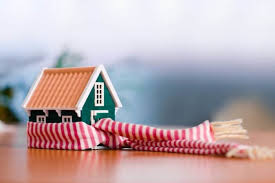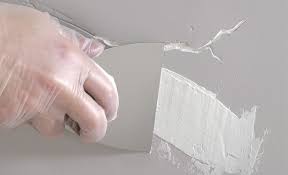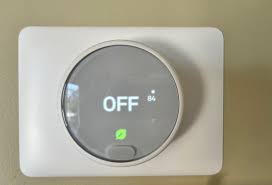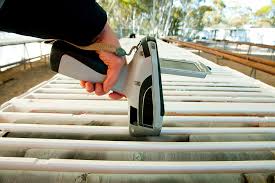What’s the Best Time of Year to Insulate Your Home for Maximum Efficiency?

Proper home insulation is one of the most effective ways to improve energy efficiency, reduce utility bills, and maintain consistent indoor comfort year-round. Whether you’re planning a new project or upgrading existing insulation, working with experienced insulation contractors can ensure your home is insulated correctly for optimal performance. But did you know that the timing of when you insulate your home can significantly impact how well the insulation performs? Many homeowners wonder: what’s the best time of year to insulate a home for maximum efficiency? This detailed guide will explore seasonal factors, insulation types, and practical tips to help you choose the optimal time to enhance your home’s energy efficiency.
Why Does Insulation Timing Matter?
Insulation plays a crucial role in regulating your home’s temperature by reducing heat transfer between indoor and outdoor environments. When installed correctly, it keeps your home warmer in winter and cooler in summer. However, the season in which you install insulation can affect its performance and longevity.
For example, installing insulation during extreme weather conditions such as sweltering summer heat or freezing winter temperatures can lead to moisture problems, compromised materials, or delayed installation. Additionally, the effectiveness of insulation can be maximized when installed at a time that allows your home to “settle” and the insulation to cure or expand properly, depending on the material.
Understanding Different Types of Home Insulation
Before deciding when to insulate, it’s essential to understand the various types of insulation and how they interact with weather conditions:
Fiberglass Batts: Popular and cost-effective, but can lose effectiveness if compressed or wet. Best installed in dry, moderate weather.
Spray Foam Insulation: Expands to fill gaps and provides excellent air sealing but requires controlled temperature conditions to cure properly.
Cellulose Insulation: Made from recycled paper treated for fire resistance, it can absorb moisture, so dry weather is ideal.
Rigid Foam Boards: Durable and moisture-resistant, but installation may be easier in moderate conditions to avoid thermal expansion issues.
Each insulation type has unique properties that influence the best timing for installation, especially related to temperature and humidity.
Seasonal Breakdown: Insulating in Different Seasons
Insulating in Spring
Spring is a transitional season with generally mild temperatures and lower humidity levels, making it an excellent time for insulation projects. Contractors are typically more available before the busy summer rush, and installation can proceed without weather-related delays. Insulating in spring also prepares your home for the upcoming summer heat, ensuring better cooling efficiency.
Insulating in Summer
Summer can be challenging for insulation installation, particularly in regions with high heat and humidity. Moisture in the air may affect some insulation materials, especially cellulose and fiberglass, leading to potential mold or mildew if not properly managed. Additionally, high temperatures can be uncomfortable for workers, possibly impacting installation quality.
That said, summer insulation can still be effective, especially in air-conditioned homes, and if you opt for materials less sensitive to moisture, like spray foam or rigid foam boards.
Insulating in Fall
Fall is often considered the best season to insulate your home. The cooler temperatures and drier air provide ideal conditions for insulation installation. This timing also allows your home to be well insulated before winter, maximizing heating efficiency and comfort. Moreover, contractors may have more availability after the summer busy season, and prices can sometimes be more competitive.
Insulating in Winter
Winter insulation can be difficult due to cold temperatures and potential moisture issues like snow or ice. Some insulation materials may not adhere or cure properly, especially spray foam. Installation in winter often requires more preparation, such as ensuring work areas are dry and heated. However, in emergency situations or in climates with mild winters, insulation during this season can still be beneficial.
Why Fall and Spring Are Often the Best Times to Insulate
Fall and spring provide the perfect balance of mild temperatures, lower humidity, and favorable weather conditions. These seasons offer several benefits:
Optimal temperature range for installation: Neither too hot nor too cold, which helps materials perform better.
Reduced moisture problems: Less risk of condensation or dampness that can compromise insulation.
Energy efficiency gains for both heating and cooling seasons: Insulation installed in fall preps for winter heating, while spring insulation preps for summer cooling.
Better contractor availability and pricing: Outside peak demand seasons, you may find easier scheduling and potentially better rates.
For these reasons, many energy experts recommend planning your insulation projects in either fall or spring to maximize performance and cost-effectiveness.
Challenges of Insulating in Extreme Weather
Extreme heat in summer can cause insulation materials to expand or off-gas chemicals more rapidly, while high humidity levels can trap moisture, leading to mold growth or material degradation. Conversely, cold winter conditions may cause some insulation to become brittle or difficult to apply, especially spray foam, which requires precise temperature control to cure.
In addition, contractors may face delays due to weather-related access issues, and homeowners may experience discomfort during installation if temperatures are extreme. Understanding these challenges can help you decide whether to wait for a more suitable season or take additional precautions.
Other Factors Influencing the Best Time to Insulate
While seasonality is important, other factors should also influence your timing decision:
Contractor availability: Scheduling when professionals are less busy can speed up the process.
Home renovation plans: Coordinate insulation with other projects to avoid repeated disruptions.
Budget cycles: Some homeowners plan insulation upgrades around tax credits, rebates, or budget timing.
Urgency: If your home has drafts, high energy bills, or insulation damage, acting promptly may outweigh seasonal advantages.
Signs You Should Insulate Your Home Now
Regardless of the season, certain signs suggest immediate insulation installation is needed:
Increasing or unusually high energy bills compared to previous years
Noticeable temperature differences or drafts in different rooms
Cold floors, walls, or ceilings during winter or hot spots in summer
Visible damage to existing insulation or evidence of moisture problems
If any of these conditions exist, waiting for the “perfect” season may cost more in lost energy savings and discomfort.
How to Prepare for Insulation Installation
Preparation helps ensure your insulation project runs smoothly, no matter the season:
Schedule a professional energy audit or home inspection to identify areas needing insulation.
Choose the right insulation type based on your climate, budget, and home structure.
Plan logistics such as clearing work areas, scheduling contractors, and securing permits if needed.
Proper preparation ensures your insulation installation is efficient and effective, leading to maximum energy savings.
Conclusion
Choosing the best time of year to insulate your home can significantly influence both the installation process and the long-term benefits. While fall and spring typically offer the most favorable conditions for insulation projects, your unique situation, climate, and urgency may justify insulation at other times.
If you’re experiencing drafts, high energy costs, or aging insulation, it’s wise to act promptly regardless of the season. By understanding how insulation types interact with seasonal conditions and preparing accordingly, you can maximize your home’s energy efficiency, comfort, and savings.
If you’re in Cape Coral FL or the surrounding area, consulting local insulation contractors can help you plan the ideal timing for your insulation project based on regional climate factors and professional expertise. Contact trusted professionals today to schedule a home energy audit and take the first step toward a more comfortable, energy-efficient home.
Note: IndiBlogHub features both user-submitted and editorial content. We do not verify third-party contributions. Read our Disclaimer and Privacy Policyfor details.







